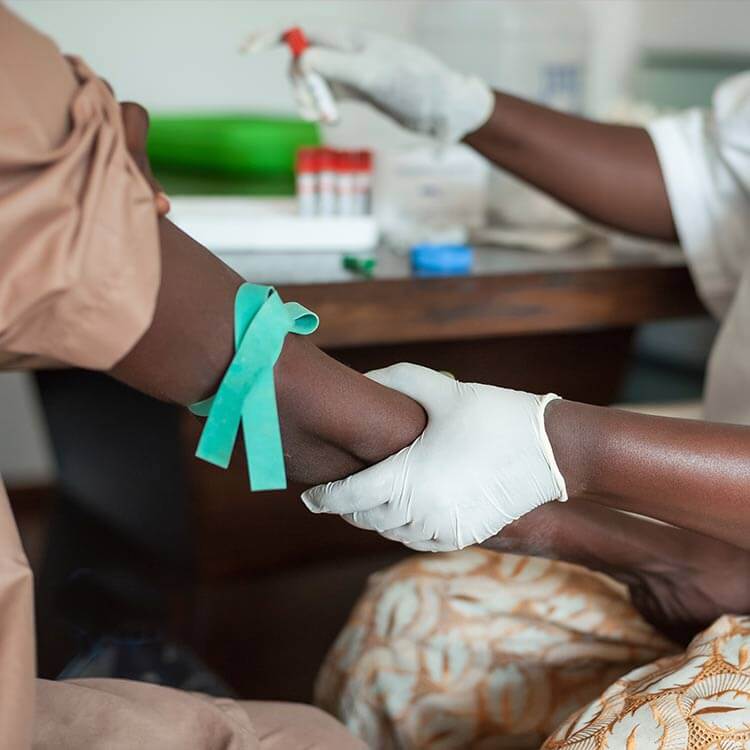Search

Research
GAMA projectThis study investigated host gene expression in response to new HIV infection.
Research
Global risk of selection and spread of Plasmodium falciparum histidine-rich protein 2 and 3 gene deletionsSince their first detection in 2010, Plasmodium falciparum malaria parasites lacking the P. falciparum histidine-rich protein 2 gene (pfhrp2) have been observed in 40 of 47 surveyed countries, as documented by the World Health Organization. These genetic deletions reduce detection by the most widely used rapid diagnostic tests, prompting three countries to switch to alternative diagnostics.
Research
Predicting the causative pathogen among children with osteomyelitis using Bayesian networks – improving antibiotic selection in clinical practiceWe have demonstrated the potential use of Bayesian Networks in improving antibiotic selection for children with osteomyelitis
Research
Use of data linkage to investigate the aetiology of acute lower respiratory infection hospitalisations in childrenThe aim was to document the aetiology of acute lower respiratory infection (ALRI) hospitalisations in Western Australian children
Research
Structural and IgE binding analyses of recombinant Der p 2 expressed from the hosts Escherichia coli and Pichia pastorisThe house dust mite allergen Der p 2 is one of the most important indoor allergens associated with allergic disease.
Research
Method of bacterial killing differentially affects the human innate immune response to Staphylococcus epidermidisIn vitro investigations of human innate immune responses to extracellular bacteria commonly utilise killed preparations in preference to live organisms
Research
The interaction between respiratory viruses and pathogenic bacteriaData on asymptomatic identification rates of respiratory viruses are limited, particularly in Indigenous populations, who suffer a high burden of OM.
Research
The changing epidemiology of invasive pneumococcal diseaseWe investigated trends in invasive pneumococcal disease (IPD) in Western Australia (WA).
Research
TLR2 mediates recognition of live staphylococus epidermidisStaphylococcus epidermidis is a nosocomial pathogen that causes catheter-associated bacteremia in the immunocompromised, including those at the extremes of age
Research
Antifungal therapy in infants and children with proven, probable or suspected invasive fungal infectionsThis review aims to systematically identify and summarise the effects of different antifungal therapies in children with proven, probable or suspected...
